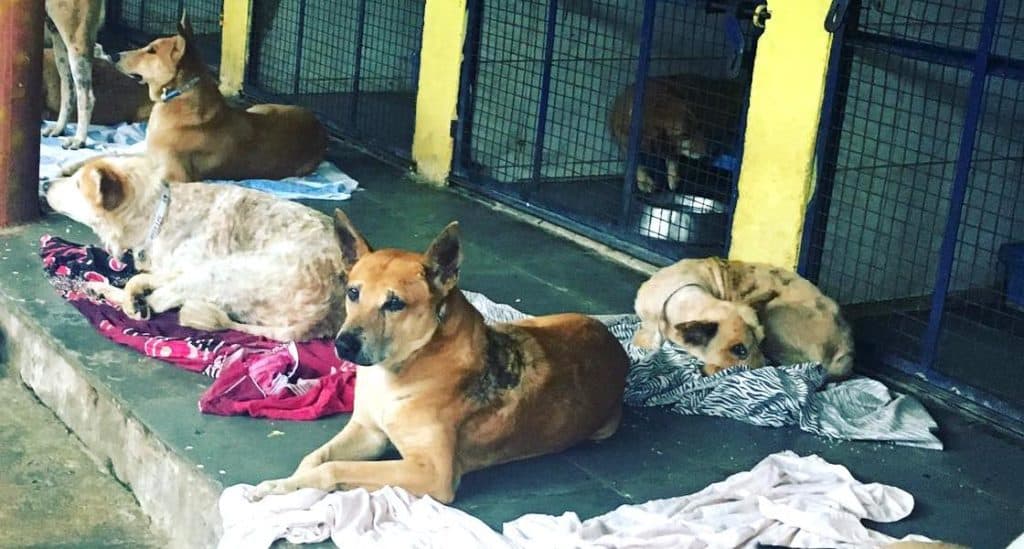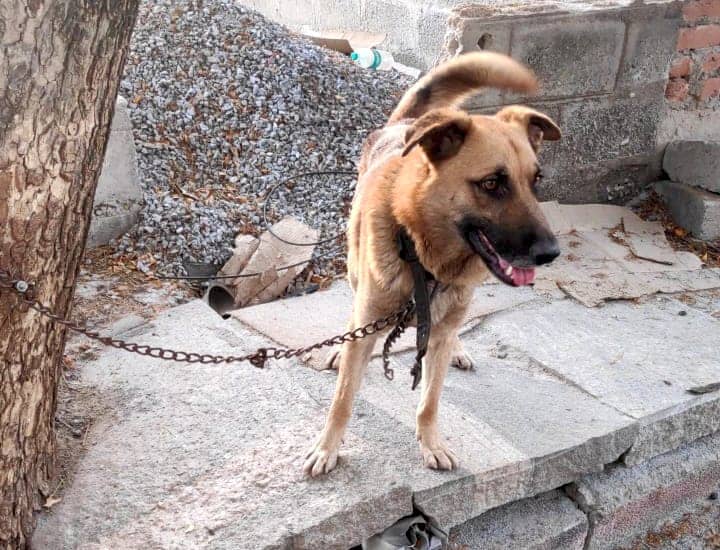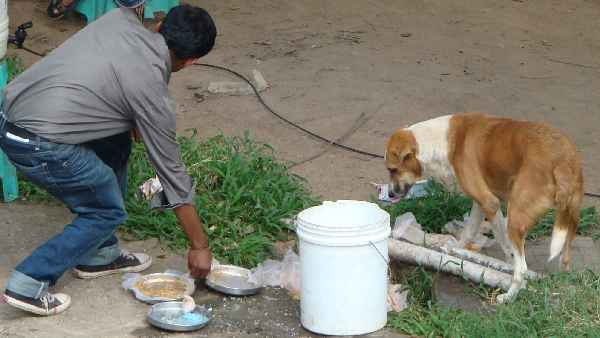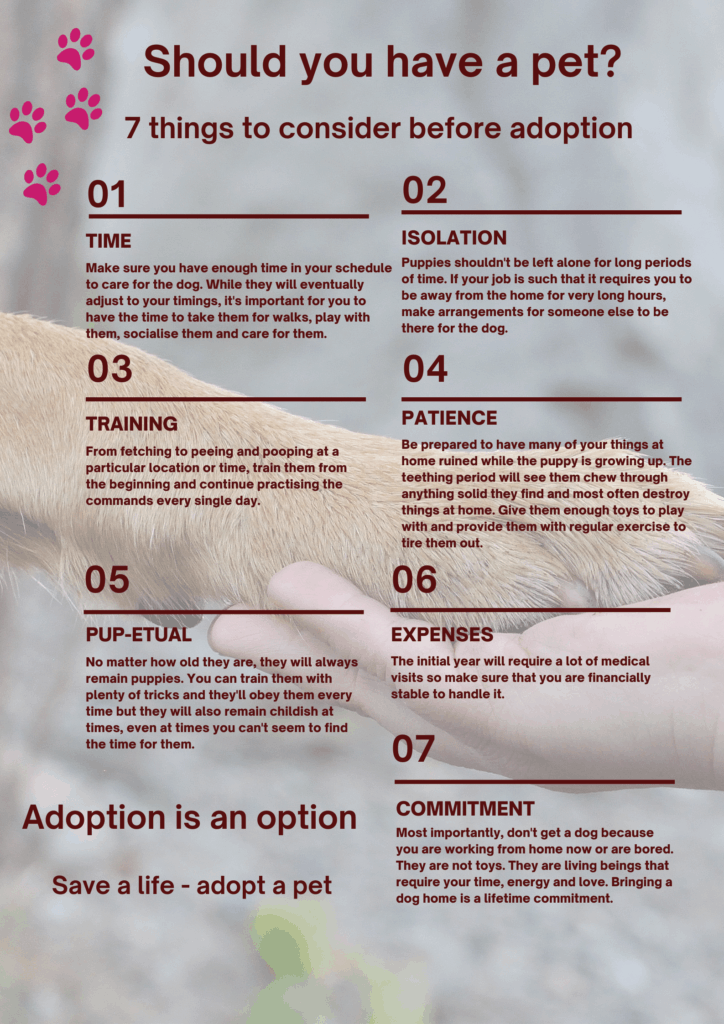There’s no doubt that Bengaluru is one of the most pet-friendly cities in the country. Over the years, it has seen a large number of people come together to speak for the animals, especially dogs, and care for them beyond their capacities.
The pandemic saw a new trend. More families welcomed new puppies to their homes during the lockdown. It gave them an opportunity to spend time with the puppies and train them to be a part of their families. This trend also saw a rise in pedigree puppies as most people fancied dogs that looked as good as they do on social media.
Everything was going well till the lockdown lasted. When people had to go back to their pre-pandemic lives, many realised that having a dog wasn’t as easy as it looked. The easiest solution they found was to return them to a shelter or, in some cases, leave them on the streets to fend for themselves.

Some moved back to their hometowns and didn’t take their pets along. A few others lost their jobs and couldn’t afford to care for the pet. Some pets were left without a plan as the parents contracted COVID. All these situations led to more pets on the streets, left to fend for themselves.
Read More: A guide for pet parents in quarantine
The lockdown puppies
Sanjana Madappa of CUPA says, “We call them the lockdown puppies. We anticipated it last year when a number of people bought pets from breeders.” Sanjana saw many pups between the age of six to eight months, given up by their new parents. She says it was more frequent after January when things started opening up.
There didn’t seem any point in counseling the parents to keep the pups either. Their lifestyles didn’t match. “It’s not advisable to leave a puppy below the age of two alone for 10 to 12 hours in a day. If your lifestyle and work schedule is like that, it’s best not to have a pet,” she says.
On average, CUPA sees 20 to 30 pups a month coming to their shelter who need to eventually be rehomed or cared for. Sanjana says, “There are still people thinking of buying dogs from breeders without understanding the reality behind it. We’re still on a mission to tell people not to bring home a dog just because they are bored at home; it’s a lifetime commitment.”

Low adoption rate of rescued pets
Charlie’s Animal Rescue Centre (CARE) saw a larger number of pets being brought to the shelter. CARE’s Manager Keerthan RP says, “We got close to 60 dogs in a month. But because we are a trauma centre, we weren’t able to take them all. We didn’t have the facility to take the healthy ones in.”
Rescuers picked up many from the streets, especially Golden Retrievers, Pugs, and Labradors. “At the beginning of last year, especially around the initial lockdown, we saw a lot of adoption and people were open to taking home Indie dogs too because they knew that they were going to be working from home. The adoptions are lesser this year due to the uncertainty of the virus, work, and other factors,” says Keerthan.
Read More: Witnessed the killing of a stray dog? Here’s how you can file a complaint
Community help
Aanchal Subbaiah, an architect, who lives in the Cunningham Road area recently helped rescue an abandoned dog. She says, “There was a German Shepherd cross tied to a tree outside a Darshini restaurant nearby. The owner used to take care of him but when we had the lockdown a couple of months ago, the dog was left behind. The reporter who found the dog in the situation cared for him initially but realised there needs to be a permanent solution.”

The dog was taken to CUPA and is still waiting to be adopted. “The owner came back and when confronted, he said he would take the dog back. But we didn’t want to take that risk because we weren’t sure what the owner would do the next time. So the dog is still at the shelter and we’re trying to find him a home,” says Aanchal.
Dog communities in the city are doing very well. Through WhatsApp and Facebook groups, each area sees a set of volunteers caring for the streeties and even helping out in terms of neutering them.
Rise in sterilisation
Entrepreneur and animal activist Bismi Anil and team have helped sterilise over 700 dogs in the Whitefield during the last year. She says, “I mostly work with street dogs and provide food for them. Thanks to the wonderful people around our area, we were able to neuter most of the dogs. So, we see fewer puppies on the street.”
The number of hungry dogs is still high though. “You’ll always find dogs in areas where there’s construction going on. Workers who live there end up feeding them and they find themselves a home. Unfortunately, during the lockdown, the workers went back to their hometowns and the dogs stayed back, hungry. This eventually leads to a lot of fights and problems,” explains Bismi.

Bismi keeps finding new areas with streeties that need to be sterilised. She says, “We’re working towards making them friendly towards us. They would run as soon as they see the BBMP vehicle approach.” Finding a home for the newborn puppies, however, isn’t always an option with street dogs.
Bismi explains, “If the mother is around, we don’t separate them. We care for them and make sure they are neutered when the time is right. If the mother doesn’t come back for the puppies, they continue to live in the community. Having said that, there are always Indie puppies that are up for adoption but it’s hard to find them a home.”
Finding a home for abandoned pets
Priya Chetty Rajagopal, animal lover and activist, says that’s the sad reality. “It has always been difficult to find Indie pups homes. It’s worse when a domesticated Indie pup gets abandoned. They won’t be able to survive on the streets.”
But there are stories of hope. Priya recalls a case where a pet had to be rehomed after the pet-parents passed away to COVID. “The couple’s children had to move to their relative’s homes outside the State. They couldn’t take the dog to the joint family even though they didn’t want to give him up. We handled that case delicately and found a home for the dog in a farmhouse,” she says.
Such incidents are still seen, as people go back to working from offices and resuming their pre-pandemic life. At the same time, animal lovers in the city are trying to educate prospective dog owners on the importance of caring for their pets and unhealthy dog breeding practices. There are volunteers coming forward to take the dogs for walks if the parent has tested positive, care for them when the parents have to go out of town, and even help with the processes of relocation to different states and countries.
In these stressful times, having a pet can be a joy. But it is important people understand the responsibility and commitment required before they bring a pet home.
